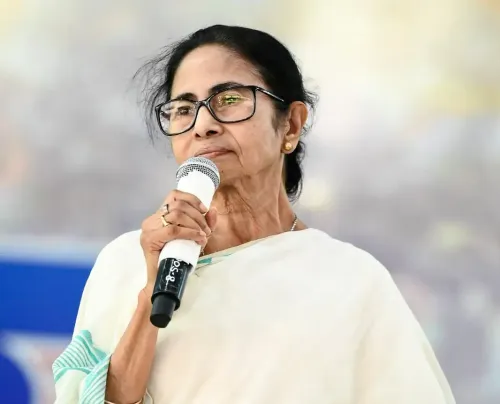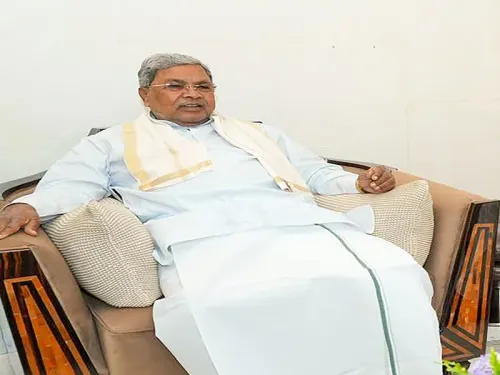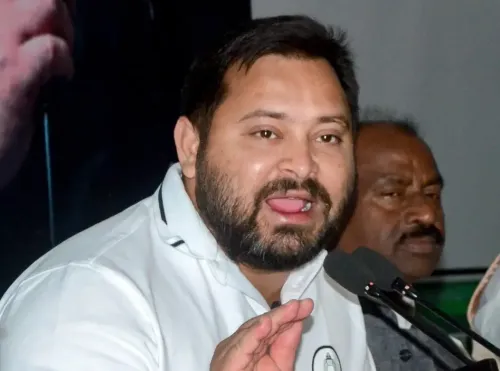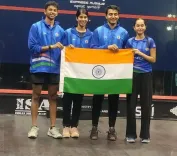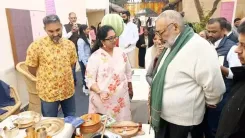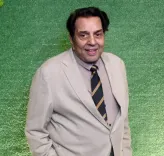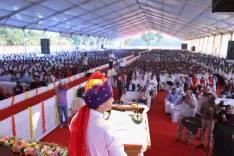South Korea's People Power Party Launches Presidential Primary
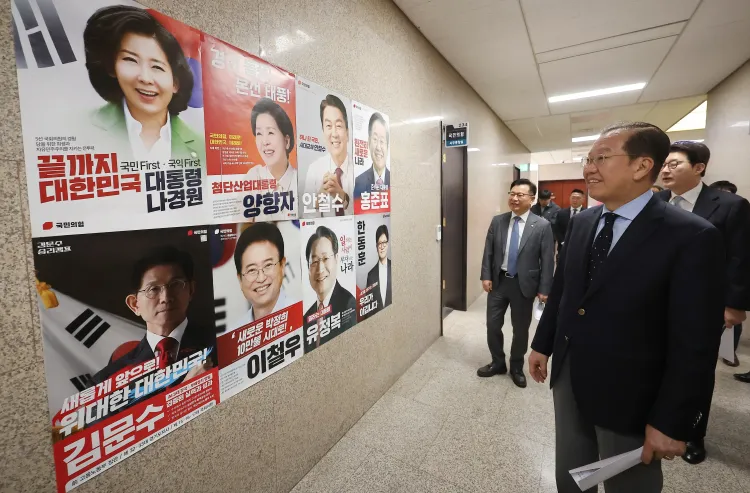
Synopsis
Key Takeaways
- PPP launches its first round of presidential primaries.
- The election is set for June 3, following Yoon Suk Yeol's ousting.
- Candidates will be shortlisted through public opinion polls.
- Kim Moon-soo proposes expanding the high-speed rail network.
- Election candidates must register by May 11.
Seoul, April 21 (NationPress) The People Power Party (PPP) of South Korea commenced the initial phase of its primary on Monday, aiming to narrow down its list to four potential candidates for the upcoming presidential election in June.
The PPP plans to carry out public opinion surveys on eight aspirants by Tuesday, with the election set for June 3, following the ousting of former President Yoon Suk Yeol on April 4 due to his unsuccessful martial law proposal.
In the second round, two candidates will be chosen based on a combination of 50% votes from party members and 50% from public opinion polling. The final candidate for the presidential race will be confirmed by May 3.
To engage voters, candidates are intensifying their campaigns, as reported by the Yonhap news agency.
Former Labour Minister Kim Moon-soo announced plans to enhance the high-speed commuter rail network extending from the Seoul metropolitan area to other significant cities.
Former Daegu Mayor Hong Joon-pyo introduced a series of welfare proposals, including a suggestion to elevate the legal age for seniors from 65 to 70, thereby adjusting the eligibility criteria for elderly welfare benefits.
Former PPP leader Han Dong-hoon visited Gyeongju, the host city for the forthcoming Asia-Pacific Economic Cooperation summit in November.
PPP lawmakers Ahn Cheol-soo and Na Kyung-won traveled to the southeastern city of Daegu, known as a conservative bastion, to rally local support.
While Kim, Hong, and Han are generally viewed as the leading three candidates, Ahn and Na are considered to be vying for a chance to progress to the next round.
Additionally, candidates must register by May 11, with the official campaign period commencing on May 12.
The law mandates that any public servant running for the presidency must resign at least 30 days prior to the election, setting the deadline at May 4.
The newly elected President will take office immediately following the election without the establishment of a transition team.
In the wake of former President Park Geun-hye's removal on March 10, 2017, an early election was also conducted precisely 60 days later, on May 9.
Meanwhile, Yoon, who rapidly transitioned from a leading prosecutor to the presidency within approximately three years, became the second President in the nation to be formally ousted. His unexpected martial law proposal caused significant unrest and heightened political polarization.
With this ruling, Yoon, aged 64, follows in the footsteps of former President Park Geun-hye, who was removed from office in 2017 after the Constitutional Court upheld her impeachment due to a corruption scandal.



